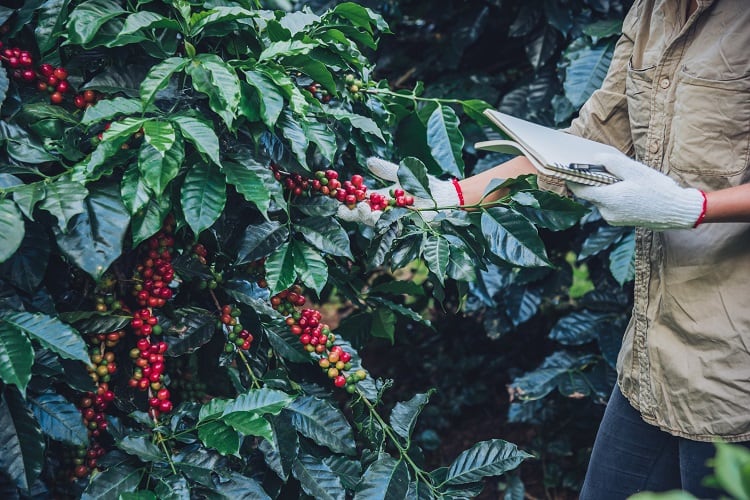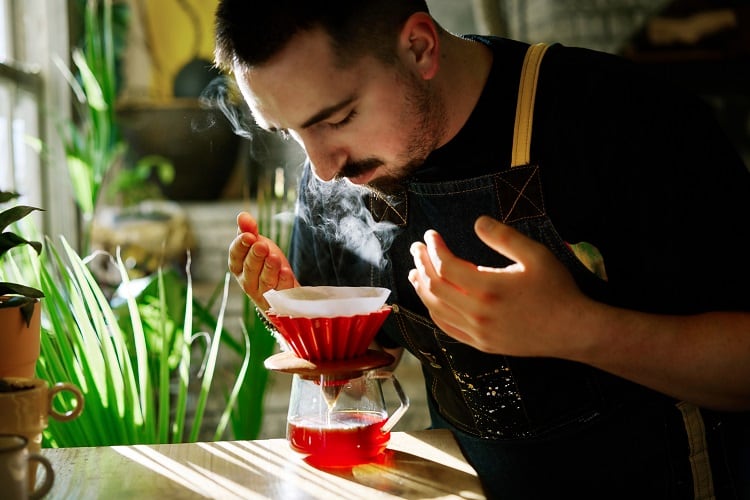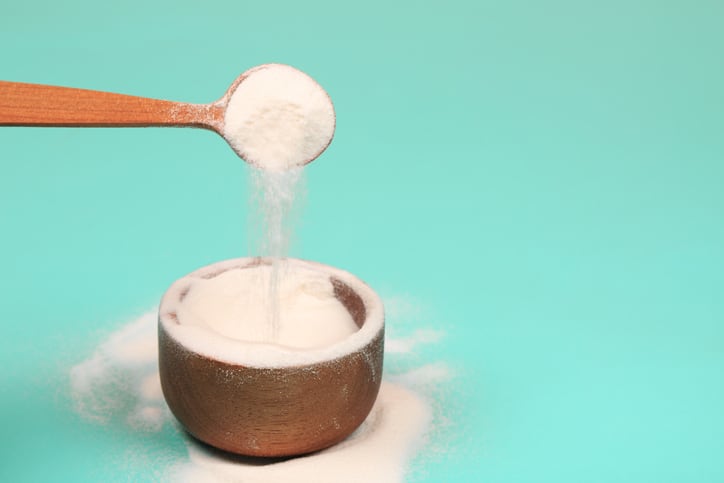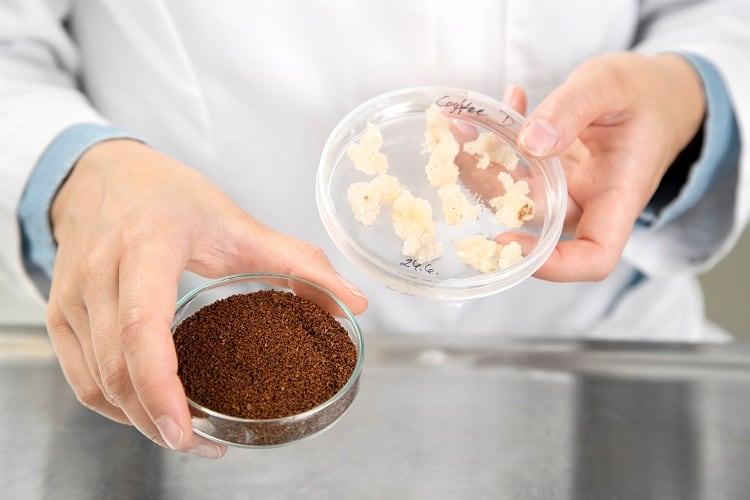Behind water and tea, coffee is the third-most drunk beverage in the world. Global consumption is on the rise, and it is possible that demand could triple by 2050.
Yet production is struggling to keep up, with coffee farmers facing major sustainability challenges. In the specialty coffee space, the most significant of those lies in climate change, whereby rising temperatures are making it increasingly difficult to grow arabica coffee.
“We will be confronting a big divergence in the near future between coffee demand and natural capacity to produce in a responsible and sustainable manner,” explained specialty coffee entrepreneur Tom Clark.
“We are already getting to that point with arabica trees, which are facing issues with disease, climate change, arable land…you name it. There’s a real challenge in producing the upwards of 10m tonnes of coffee that is consumed per year.”
In a business-as-usual scenario, Clark can’t guarantee arabica coffee will still be available to consumers 50-100 years from now.
Together with co-founders Henri Kunz and Dr Chahan Yeretzian, who are serving as President and CSO respectively, Clark wants to ensure arabica coffee will be enjoyed for eternity. To do so, the trio has established a Paris-based start-up to remove agriculture from a segment of coffee production.
Stem, they believe, is the only cell-cultured coffee company in the world.
Replacing unsustainable practices
Stem is not looking to replace specialist coffee, but rather offer an alternative means of production.
“There’s a real question about whether it makes sense to produce conventional coffee, which is very resource intensive, damaging to ecosystems, and produces quite a few greenhouse gases,” said Clark.
Indeed, around 45% of greenhouse gas emissions associated with the coffee value chain is produced at the production level. Such emissions are ‘even higher’ on a conventional scale, due to additional inputs, such as pesticides.
“Our premise is that we are not looking to replace responsible, eco-friendly production, because coffee is a naturally occurring species and it has its place in our biosphere. But we feel we can play a part in reducing coffee’s toll on the planet by allowing farmers to produce great coffee in pockets of the Earth that make sense, and providing alternative means of production to replace the commodity side of the equation.”
Stem plans to develop cell-cultured coffee from coffee leaves. In so doing, the start-up will be able to control every step of the process, and consequently produce coffee in a more ‘ecologically-minded manner’.
How is cell-cultured coffee different to lab-grown meat?
Cellular agriculture is big news in food tech. In Singapore, consumers can order lab-grown chicken in a restaurant, and in Europe, Israel, and the US, a growing number of start-ups are hoping to bring cell-based meat, dairy, and egg proteins to market.
Cultivated coffee production differs in that it is completely plant-based. But at its foundation, the principle is the same, explained co-founder Kunz.
“We extract DNA from the coffee leaf and apply certain protocols, before bioprinting the cells onto [scaffolds], which can then be ground to make green coffee for roasting.”

In terms of tissue engineering, the technology is not ‘unusual’. Where it differs significantly, however, is in its growth media. In cell-based meat production, the cost of media can be prohibitively expensive – priced at hundreds of dollars per litre.
According to the Good Food Institute (GFI), even a plant-based alternative to foetal bovine serum (FBS) for cultivated meat production is sold at around $400 per litre. Stem’s growth media costs around €10 per litre, and with scale, the start-up expects this cost to halve.
“The growth media is a big, big advantage,” Kunz told FoodNavigator. “This is definitely the biggest advantage.”
In terms of scalability, Kunz suggested plant-based approaches are significantly less complicated compared to cell-based meat. The greatest challenge, he revealed, actually lies in taste.
Future-proofing taste
Taste engineering is a major focus for Stem. This is where the ‘specialty’ element comes from, according to Clark, and where the start-up expects it will have the greatest impact. The product is, after, all, ‘100% genetic coffee’.
“It’s not just being able to reproduce a coffee-esque flavour profile. We want to nail down on the chemistry that makes every species of coffee in its own single origin environment so unique. To get to that level of competence is really something unique – we don’t see anyone that’s working to this level of ambition.
“If we can nail that down to reveal the full potential, at a molecular level, of each coffee’s individual flavour profile, we’ll have pretty much cracked the ‘El Dorado’ of taste – coffee being a very complex product. We feel that it’s really beyond the bioengineering where we can have a big impact.”
Of the two coffee varieties, arabica and Robusta, Stem is targeting the former. Robusta, as the name implies, is more robust. Its roost system is approximately four time more expansive than that of arabica, and as a result is significantly more prolific. “It grows with less water, doesn’t require as much shade and altitude…and at a genetic level, is inferior to arabica.”
Stem has its eyes on the very ‘top of the pyramid’ of arabica, which Clark explained is often also the most fragile.
“We want to start at the very top of the apex to preserve [these varieties], and even create a database of genetic material. Every time we look into the genetic material, we’ll be able to more or less future-proof that – a bit like a seed bank…
“We feel that we can contribute to future-proofing species that may not exist in decades to come.”
Cell-based filter coffee
Stem is not interested in bioprinting in bean form, since that would require extra energy and time. Rather, the company is developing a powdered product that will be roasted and brewed initially as a filter coffee. Further down the line, the start-up will target the espresso market.
“In specialty coffee, filter is often seen as the way of really appreciating and tasting the full spectrum of flavours, because it has a much more subtle flavour,” Clark explained.
Filter coffee has a higher water content as well as a longer extraction time, which the co-founder suggested enables greater accessibility to coffee’s more ‘discrete’ and ‘subtle’ compounds. Espresso, on the other hand, is a more concentrated form or coffee where three to four flavours tend to dominate. “You can lose some of the subtleties, so we want to improve that.”
Stem is working on a D2C hardware solution for filter coffee based on its cell-based coffee powder. Down the line, the start-up will also target foodservice.
“There is a real mindset and paradigm shift connected to this science. That’s also one of the reasons we want to control the experience from A-Z to begin with, before we open it up into every accessible form that makes sense from an environmental and quality perspective,” stressed Clark.
Approximately 30% of emissions associated with coffee production can be attributed to the brewing stage. “It’s important that we contribute a hardware solution that reduces that impact as well.”

In terms of pricing, Stem wants to enter the market with a ‘very competitive’ price at the cup level. This is feasible, suggested Clark, given the competitive cost of its plant-based growth media.
Other advantages include its powdered format, which the co-founder explained means a higher surface area compared to conventional ground coffee. “We will have a more efficient way of producing the beverage and our hypothesis is that the increased surface area will enable a lower dose per litre.
“Currently, to produce one litre of filter coffee from a bean, you require a minimum of 60g per litre. Our hypothesis is that this new form with a higher surface area will produce the same amount at a lower ratio.”
Seeking regulation approval in Europe
As far as the Stem founders know, they are the only business working on cell-cultured coffee for commercialisation.
Last year, however, Europe’s first cup of coffee developed from cellular agriculture was brewed by researchers at the Finnish Technical Research Centre (VTT). Elsewhere, companies are working on coffee alternatives: US-based Atomo, for example, is developing a coffee-free substitute made from ‘upcycled sustainable plants’ such as watermelon seeds and sunflower seed husks.
Stem doesn’t want to remove coffee from the equation, stressed Clark. “We want to provide a scientific means of producing coffee in a controlled, scalable, and environmentally responsible way to relieve pressure from the ecosystem.”
No cell-based coffee product exists on the market in any geography. In developing a completely new way of producing the popular beverage, Stem will need to pass by the European Food Safety Authority’s (EFSA) Novel Foods regulation.
Unlike Singapore, which has already approved a cell-based meat ingredient for commercialisation, or the US which is a leader in cellular agriculture-based dairy alternatives, Europe’s regulatory framework is more stringent. Stem is not put off.
“We are connecting to our roots. We’re based in Paris, where there is an incredible history of coffee and poets and artists…” explained Clark, who co-founded specialty coffee business Coutume back in 2010. “We’re inspired by the historical connection of coffee and its impact on modern day culture.”
The traditional coffee house was born in Vienna, and Europe played a significant role in proliferating coffee throughout the world into various colonies, he continued. “We’ll look to expand into other markets, but we’ll very much start locally.”
Stem is currently raising its seed round and plans to move into a GMP grade cell-culture lab from August.




